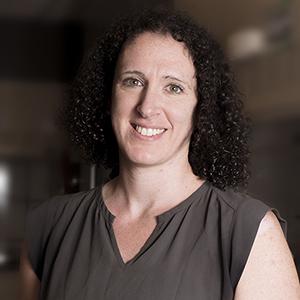Event
Inorganic Chemistry Seminar: Dr. Caroline Saouma
"Thermodynamic and mechanistic studies of CO2 reduction catalysts"

Dr. Caroline Saouma
University of Utah
Thermodynamic and mechanistic studies of CO2 reduction catalysts
Abstract:
The increase in global energy demands, coupled with growing environmental concerns, necessitates the development of viable technologies to store solar energy. Towards this end, my group is focused on developing efficient catalysts that convert CO2 to CO, methanol or formic acid. My talk will first describe our mechanistic studies on known CO2 hydrogenation catalysts, whereby mechanistic insight is gleaned through thermochemical studies and allows for tuning the product selectivity. We also have uncovered a unique mechanism for CO2 hydrogenation, whereby CO2 must first bind to the ligand before subsequent reduction occurs. I will then discuss how we have used the same thermochemical approach to study the mechanism of electrocatalytic CO2 reduction in a combined carbon capture & reduction system. Finally, I will present a novel ligand scaffold that, when put on Co, allows for both the hydrogenation of CO2 to formate and the electrochemical reduction of CO2 to formate; this is unique in that no H2 is produced electrocatalytically. The collective work underscores the importance of the effective hydricity as a parameter of interest and in using thermochemical parameters to rationalize and uncover alternative mechanisms. The studies presented are contextualized in developing an understanding of how to rationally design energy-efficient CO2reduction catalysts.
Bio:
Caroline Saouma was born in Pittsburgh, PA and grew up between Boulder, Colorado and Lausanne, Switzerland. After visiting NIST as a second grader, she was hooked on science. She went to MIT to complete her bachelor’s degree (chemistry, 2005), where she did research with Steve Lippard on developing cisplatin analogues that target specific malignancies. She then went to Caltech to complete her PhD under the supervision of Jonas Peters, where she investigated iron-mediated reductions of CO2 and N2. Her postdoctoral work with Jim Mayer focused on PCET reactions of synthetic FeS clusters and MOFs. She joined the faculty at the University of Utah as an assistant professor in 2014, where her research is focused on mechanistic studies and catalyst design for CO2 reduction. She is the recipient of the NSF CAREER (2020) and is a Chemical Communications Emerging Investigator (2020). She enjoys the outdoors and is an avid cyclist and cross-country skier. She is a strong advocate to promote equity in the sciences, and has given COACh workshops, as well as includes DEI discussions into her undergraduate courses. For this and her contributions to education, she was named a Utah Jazz “Most Valuable Educator” this past year, one of only 21 educators selected from the entire state (and the first non-K-12).
https://www2.chem.utah.edu/saouma/
Host; Goldberg
